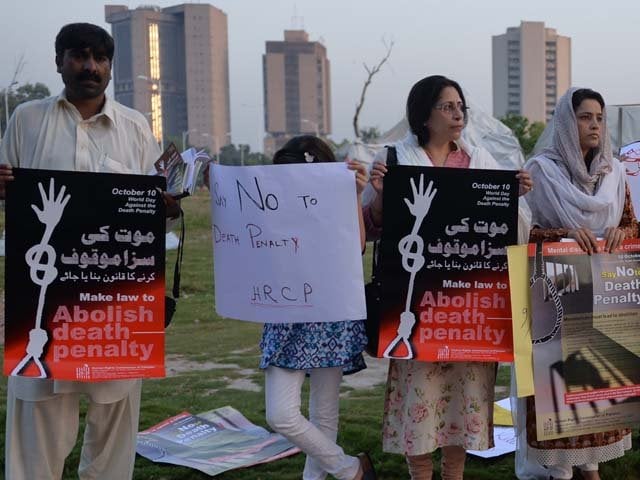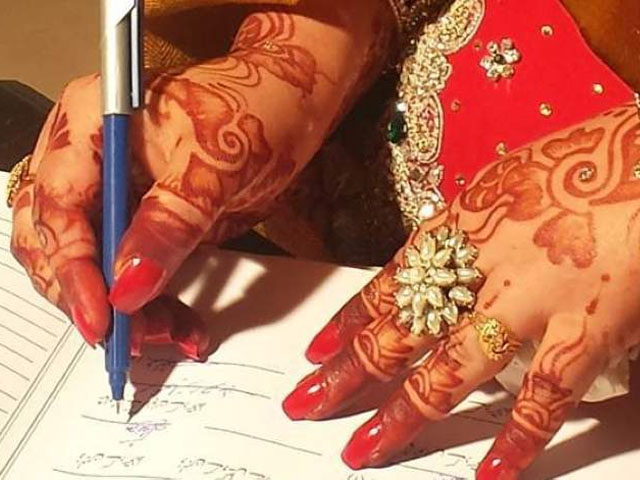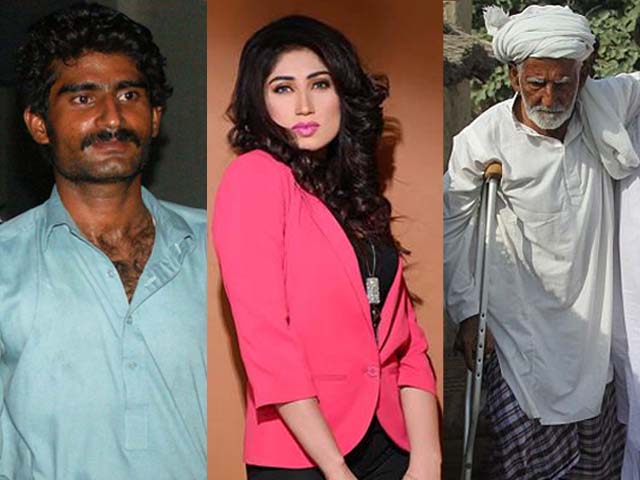
Will Pakistan continue to fail its non-Muslim men and women?
A law is proposed, the law is approved, and the law is implemented. Simple, right? Not in Pakistan.
Every year in Pakistan over a thousand non-Muslim women are forced to convert to Islam.
The stories of forced conversions tend to have a similar pattern. First, the girls are abducted. Once taken away from the safety of their homes and communities they are raped and then, usually, married off to their assailants who sneakily shield their non-consensual sexual assault behind the veil of a nikkahnama. Sometimes they are sold into the sex trade.
These girls rarely ever return to their families. Help from the police and local clerics is pretty much unheard of. Both parties are either in on the barbaric practice of forced conversions or silent encouragers from the side-lines.
Life lived in fear of being the next to be taken has put many of these girls out of school and the workforce. Retreating into their homes means some semblance of security. After all, if your community, neighbourhood, city and country have all failed you – where does one go? And if the police, learned religious clerics, the neighbours, and the government have turned a blind eye to your plight – who does one turn to?
Promising, progressive and probably improbable
This week news broke of Nand Kumar Goklani, a Hindu member of the Sindh Assembly, successfully tabling two private member bills. Aptly titled, the Sindh Minority Rights Commission bill and the Criminal Law (Protection of Minorities) bill, Goklani hopes these bills, which have already faced some delay in May, will be passed during the on-going budget session or right after.
The Criminal Law (Protection of Minorities) bill tackles forced conversions directly. By making it illegal for a person under the age of 18 to change their religion, and by providing adults 21 days to make an independent decision on whether they do, in fact, wish to adopt a new faith. The proposed bill hopes to counter the current practice whereby a victim shows up in front of a court, with little to no security, and testifies she converted independently and/or because she was in love with her perpetrator.
In its current form, the proposed law is promising and progressive. It comes with several built-in special measures that would heighten protection of a victim of a marriage based on forced conversion. It grants the alleged convert an option to study comparative religions. It places a ban on reporting names or the locations of the alleged convert to increase protection of her and her family. It promises heightened security for the prosecution, its witnesses, and investigating officers. Most importantly, it promises a punishment to fit the crime: if a marriage is deemed to have been performed on the basis of a forced conversion, the court can fast-track divorce proceedings. Individuals found guilty of forceful conversion face a minimum five-year sentence that can extend to a life sentence. And those, such as the police or religious clerics, who are found guilty of making the marriage happen, face a minimum three-year sentence.
Promising and progressive, right?
Yes.
With the unfortunate caveat that the implementation of such legislation is a far-off and very improbable dream. In fact, based on Pakistan’s track record of introducing promising, progressive laws that then go on to collect dust on the shelves of law libraries, sadly, it is all too probable these legislations will go on to do the same.
Just like Shoaib Mansoor’s film Bol attempted to address every social ill known to Pakistan in a three-hour tearjerker film, Pakistan is notorious for promising legislation targeting every social ill affecting the aam admi (common man).
But poor implementation or, in many cases, a complete failure to implement, has rendered even the best of Pakistan’s policies worthless. Implementing legislation sounds like a no-brainer. A law is proposed, the law is approved, and the law is implemented. Simple, right?
Not in Pakistan.
Take for instance our country’s environmental protection laws. We have some of the best of their kind. Bet you didn’t know this as you sit reading with your phone charging in preparation for the inevitable daily power outages. That’s because despite having some of the best environmental protection laws on paper, the nation’s environmental protection agencies remain so weak and overrun by corruption that power theft continues unabated and unchecked.
But you, the intelligent reader are prone to noticing spurious correlations, and are likely thinking ‘load-shedding, the environment, and large-scale corruption… what do these things have to do with kidnapping a Christian girl from Jacobabad, forcing her to convert to Islam, and then raping her, or marrying her, or doing away with her completely by selling her off into the sex trade’?
Then let us consider laws more relevant to the protection of women including the hypothetical Christian girl from Jacobabad. In 1996, Pakistan ratified The Convention of Elimination of Discrimination Against Women (CEDAW) – an international legislation. An abysmal ten years later and many of CEDAW’s legislative measures remain unimpressively unimplemented.
Okay, but that was 1996.
Ab kya purani baaton ko uchal na?
(Why juggle with old news?)
Back to the year 2016.
The year of Sharmeen Obaid-Chinoy who took home an Oscar this February for her documentary, A Girl in the River, an exposé on honour killings in Pakistan. All the international attention and accolades got our prime minister excited and high on promises to change the country’s archaic laws which currently allow families to murder their daughters in the name of ‘family honour’ and pretty much walk away scot-free without punishment.
Unfortunately, as news surface this week of yet another girl burned alive – by her mother nonetheless – for marrying against her wishes. It seems that our PM has forgotten (or was forced to forget) to follow through on what is a key component of the law making process: implementation.
Not our first rodeo
The Sindh Assembly’s proposed legislations are promising and progressive but they are not new news.
Two years ago the Supreme Court of Pakistan came out with a very important ruling which, much like the Sindh Assembly’s two proposed bills, on paper appeared to have the power to put an end to the injustices faced by non-Muslims in Pakistan.
The Supreme Court judges were thoughtful enough to draft their judgment in the simplest of words (as a lawyer, I can personally testify how difficult of a task it is for us lawyers to un-lawyer). This ruling was written simply so it could be accessible to all levels of confused bigots. It defined religious freedom in the broadest and clearest terms. It declared the right to practice one’s religion – whether it be Islam, Christianity, Hinduism or Scientology – as a most fundamental, untouchable right. But all the confused bigots still misread (or failed to read) this simple yet powerful ruling. And the provincial governments also failed to take notice since they were at the time preoccupied with other more pressing issues (it remains unclear what these issues were).
And so, despite the passing of two whole years and one very significant Supreme Court of Pakistan ruling, things continue to suck for Pakistan’s minorities. A lot.
And this is why this writer is simply not convinced that the Sindh Assembly’s (admittedly progressive) proposed legislations will accomplish much once they are passed and reach the implementation phase.
In fact, this writer takes issue with all elements surrounding the proposed legislations, including their names.
A democratic state such as Pakistan should rest on the bedrock of religious diversity. That was the promise of Mohammad Ali Jinnah in 1947. And that is the current promise of Article 25(1) of the Pakistani constitution. Because religious diversity should, ideally, be the bedrock on which our country is built, the word ‘minority’ should not even be part of the proposed legislation.
Minority refers to something that is less than half of a total. It is defined as a smaller part of a larger group. Minority is synonymous with having a lesser status. A smaller role. With powerlessness.
Do away with the majority/minority wordage and in future legislation simply refer to your protected class of persons as non-Muslim or Muslim because that’s the issue here, right? That’s your step one.
Next, turn up the heat, and by turn up I mean really turn up the heat, on holding accountable our voted-in politicians and policymakers. Before we start creating new laws to target old problems, we need to ask whatever happened to the Supreme Court’s 2014 recommendation to form a three-member bench tasked with exclusively looking out for violations of minority rights? A separate task force that is independent of corrupt police, court officials, and local politicians is the only way to streamline and address complaints of forced conversion urgently and safely. That’s your step two.
Next, ramp up the quality and availability of pro-bono services across Pakistan. Make pro bono services attractive to young lawyers. Make current lawyers more competent by updating them on changes to the law and legal recourses available to victims of forced conversion. Being poor should not be synonymous with having poor legal representation. And, let’s face it, most non-Muslims who come seeking legal help in cases of forced conversions are operating on the lower end of the income scale. Pakistan’s unfortunate wealth disparity should not mean that access to justice is not available to the raped, abducted and forced to convert preadolescent girl. That’s your step three.
Then, turn your attention inward. The public itself is in dire need of a realignment of the prevailing, deeply entrenched, and damaging societal attitude towards women, non-Muslims, and their rights. Adopting new laws inside the air conditioned halls of the Sindh Assembly is not enough. The new law has to be adopted by the streets where it is broken. The goal is not to introduce laws. It’s about taking laws and implementing them and then informing the masses loudly and clearly of the changes in order to shake up their patriarchal, misinformed mind-sets. That’s your step four.
It is a tragedy of epic portions that some seven decades after the formation of Pakistan, our country’s rap sheet still has us leading in forced religious conversion – of the vilest crimes one could inflict against humanity. The Sindh Assembly and its members are commendable for leading the way in ground-breaking legislations. From the 2014 amendments that increased penalties for parents who forced their children into marriage before the age of 18, to January’s Hindu Marriage Act, to Goklani’s proposed legislations targeting the rampant abuse against non-Muslims, Sindh is speaking loud. And it’s time for the rest of Pakistan to start listening.
That’s your step five.




COMMENTS (40)
Comments are moderated and generally will be posted if they are on-topic and not abusive.
For more information, please see our Comments FAQ